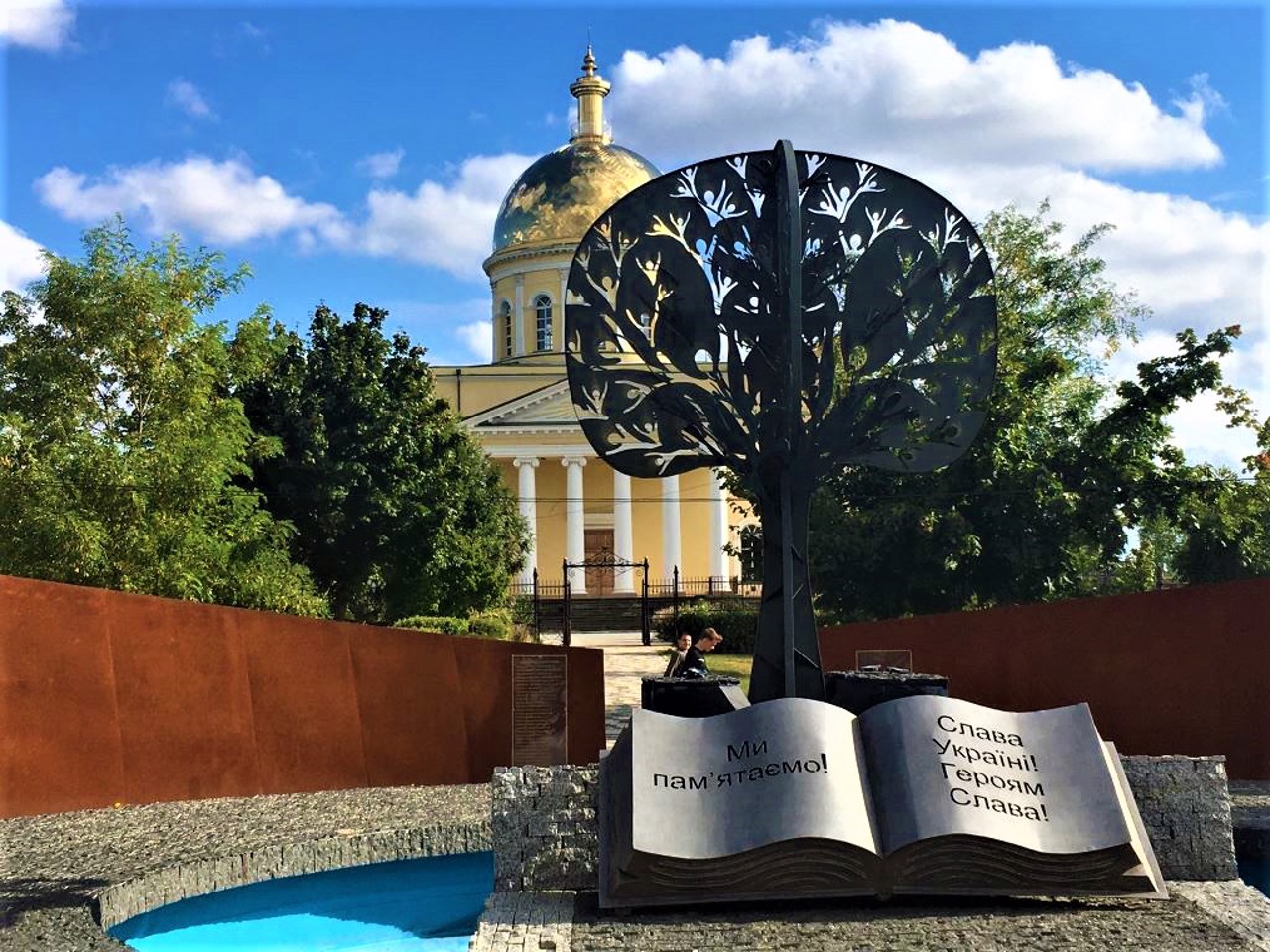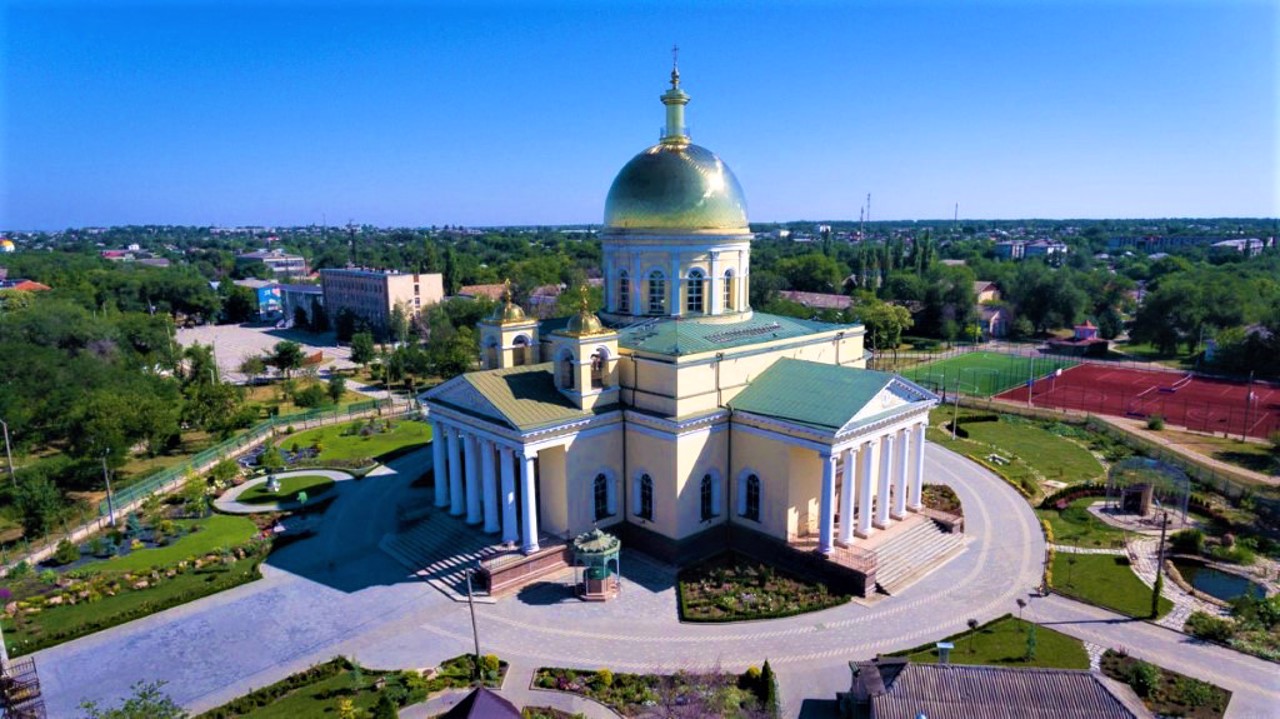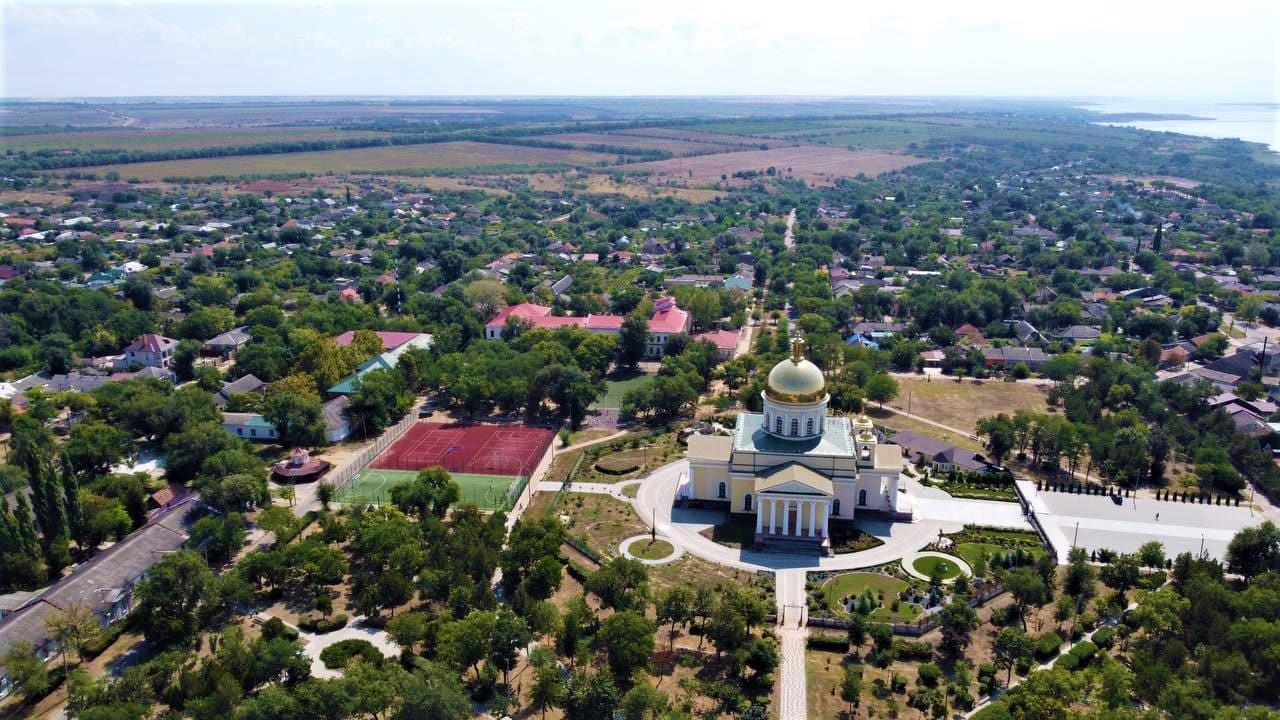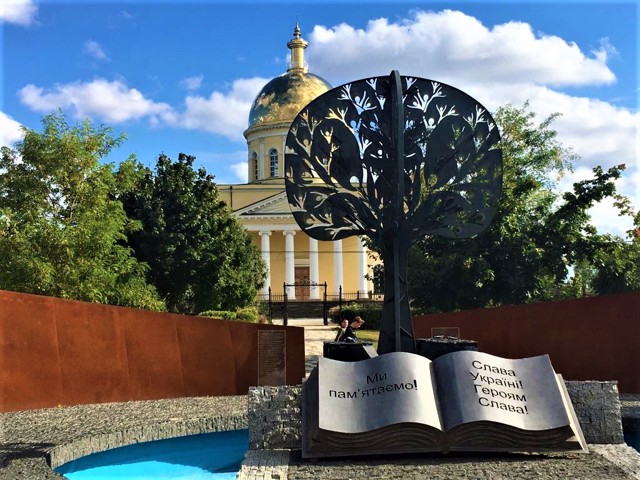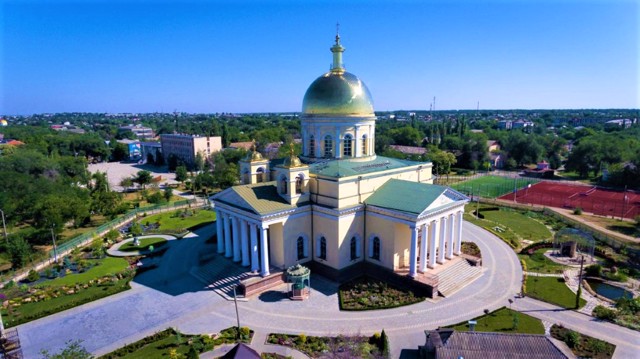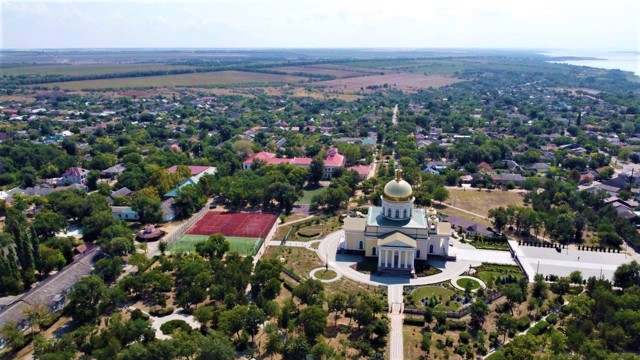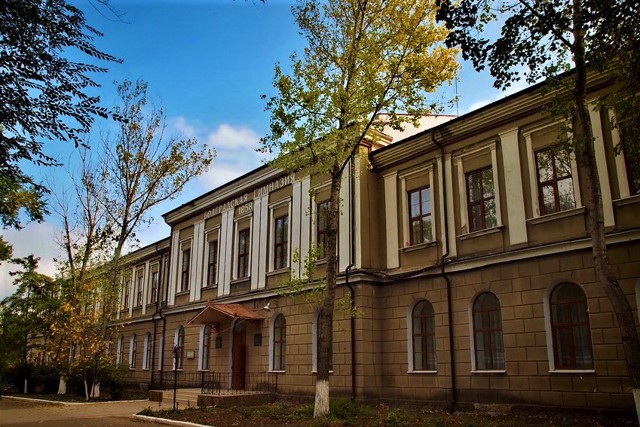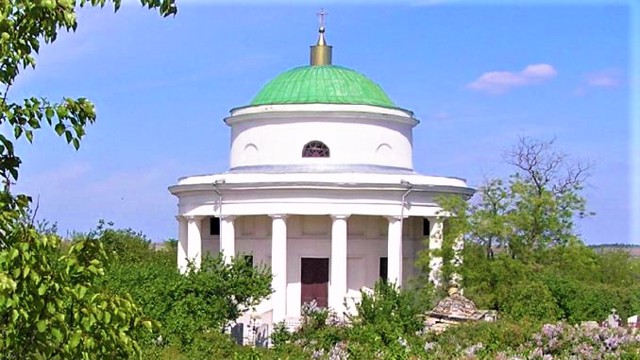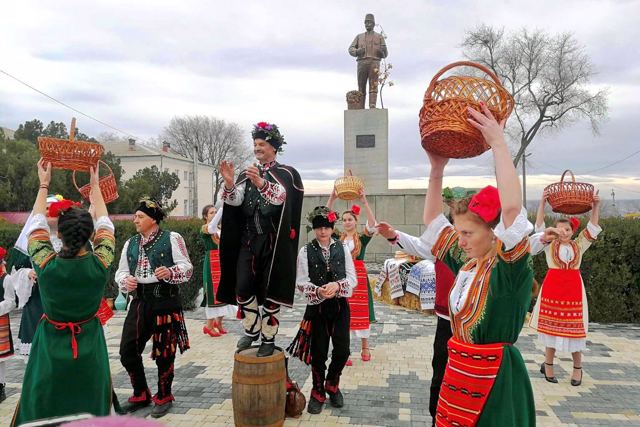Functional temporarily unavailable
General information about Bolhrad
The Bessarabian city of Bolhrad is located on the shores of Lake Yalpuh, 220 kilometers northwest of Odesa, on the border with Moldova, not far from the Romanian border ("Reni" border crossing).
Founded in 1821 on the site of Tabaki settlement by Bulgarian colonists, which is reflected in the name. The Russian governor of Bessarabia, Lieutenant General Ivan Inzov, was engaged in the settlement of immigrants from the territories controlled by the Ottoman Empire (a monument has been erected). In 1843, the first stone temple was laid - the cemetery church of Saint Mitrofan, which became the burial place of Inzov.
In the 19th and 20th centuries, Bolhrad was under the rule of Moldavia and Romania se ...
The Bessarabian city of Bolhrad is located on the shores of Lake Yalpuh, 220 kilometers northwest of Odesa, on the border with Moldova, not far from the Romanian border ("Reni" border crossing).
Founded in 1821 on the site of Tabaki settlement by Bulgarian colonists, which is reflected in the name. The Russian governor of Bessarabia, Lieutenant General Ivan Inzov, was engaged in the settlement of immigrants from the territories controlled by the Ottoman Empire (a monument has been erected). In 1843, the first stone temple was laid - the cemetery church of Saint Mitrofan, which became the burial place of Inzov.
In the 19th and 20th centuries, Bolhrad was under the rule of Moldavia and Romania several times.
The Savior and Transfiguration Cathedral, founded in 1838 on donations from the city's residents, has been preserved. The Bulgarian Church of Saint Nicholas (1881) is also preserved.
Bolhrad is distinguished by a regular layout of streets that divide the city into regular rectangles of quarters. On the shore of the lake there is a park named after Pushkin, which, according to legend, used to pass through Bolhrad.
Бессарабське місто Болград розташоване на березі озера Ялпуг в 220 кілометрах на північний захід від Одеси, на кордоні з Молдовою, неподалік від румунського кордону (прикордонний перехід "Рені").
Засноване в 1821 році на місці поселення Табакі болгарськими колоністами, що відображено в назві. Облаштуванням переселенців з контрольованих Османською імперією територій займався російський намісник Бессарабії, генерал-лейтенант Іван Інзов (встановлено пам'ятник). В 1843 році було закладено перший кам'яний храм - цвинтарна церква Святого Митрофана, що стала усипальницею Інзова.
В XIX-XX століттях Болград кілька разів опинявся під владою Молдавії і Румунії.
Зберігся Спасо-Преображенський ...
Бессарабське місто Болград розташоване на березі озера Ялпуг в 220 кілометрах на північний захід від Одеси, на кордоні з Молдовою, неподалік від румунського кордону (прикордонний перехід "Рені").
Засноване в 1821 році на місці поселення Табакі болгарськими колоністами, що відображено в назві. Облаштуванням переселенців з контрольованих Османською імперією територій займався російський намісник Бессарабії, генерал-лейтенант Іван Інзов (встановлено пам'ятник). В 1843 році було закладено перший кам'яний храм - цвинтарна церква Святого Митрофана, що стала усипальницею Інзова.
В XIX-XX століттях Болград кілька разів опинявся під владою Молдавії і Румунії.
Зберігся Спасо-Преображенський собор, заснований в 1838 році на пожертвування жителів міста. Також збереглася болгарська церква Святого Миколая (1881 рік).
Болград відрізняється регулярним плануванням вулиць, які ділять місто на правильні прямокутники кварталів. На березі озера розбитий парк імені Пушкіна, який, за легендою, бував в Болграді проїздом.
Сплануй своє перебування у Bolhrad
What to see and where to go in Bolhrad
Tourist attractions and museums of Bolhrad
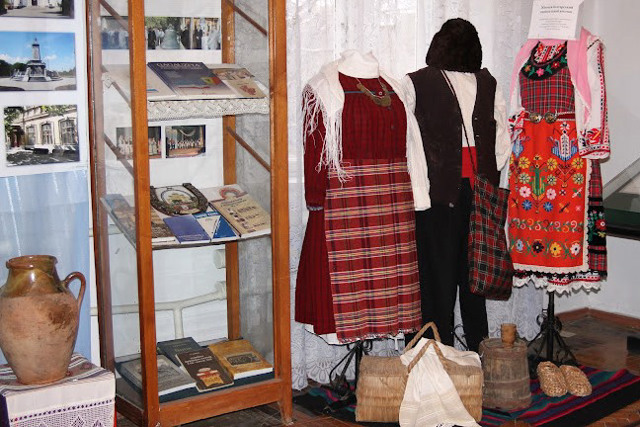
Bolhad Historical and Ethnographic Museum
Museum / gallery
The Bolhad Historical and Ethnographic Museum was opened in 1961 on a public basis. In 1968 it received the status of a people`s museum. In 1989 it became the ethnographic department of the Odesa Historical and Local Lore Museum and was named the "Historical and Ethnographic Museum".
The museum's collections reflect the ethnography of the peoples of Southern Ukraine, in particular, the national costumes of the Bulgarians, Gagauz, Albanians, Ukrainians, Moldovans, Jews, Romanians, Turks, as well as copper and clay utensils of the late 19th century are presented for viewing. Archaeological finds of the 3rd-2nd millennium BC are also exhibited.
A separate hall is dedicated to the history of the founding of the city of Bolhrad, which is inextricably linked with the name of the plenipotentiary governor of Bessarabiya, governor-general of the Novorossiya Territory, Ivan Inzov. The museum's exposition contains materials dedicated to this military and statesman.
Other sections present old postcards, photographs, souvenirs, jewelry, various tools and other exhibits that introduce the folk crafts and trades of the peoples living in Bessarabiya.
The museum building houses the Center for Bulgarian Culture.
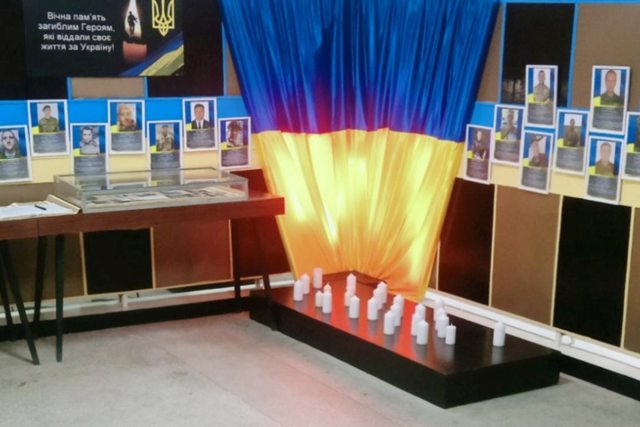
Bolhrad City History Museum
Museum / gallery
The Bolhrad City History Museum is being created in the premises of the former Officers' House on the basis of what is now the second building of the Bolhrad City Council's Culture and Leisure Center, on the basis of the former Museum of Battle Glory.
The first hall to open in 2023 was the "Glory to the Ukrainian Warrior" hall, dedicated to the events of the Russian-Ukrainian war. Here are presented materials about fallen heroes, samples of weapons, elements of military equipment, trophy items of the Russian occupiers, the national flag with signatures of Ukrainian defenders from the ATO times, flags and chevrons of various units.
Old expositions tell about the creation of the Armed Forces of Ukraine, the history of World War II, the combat path of the 98th Airborne Division, the history of the founding of the first airmobile division of Ukraine.
The creation of new expositions is underway, where household items, tools, letters, photographs and other historical values will be presented.
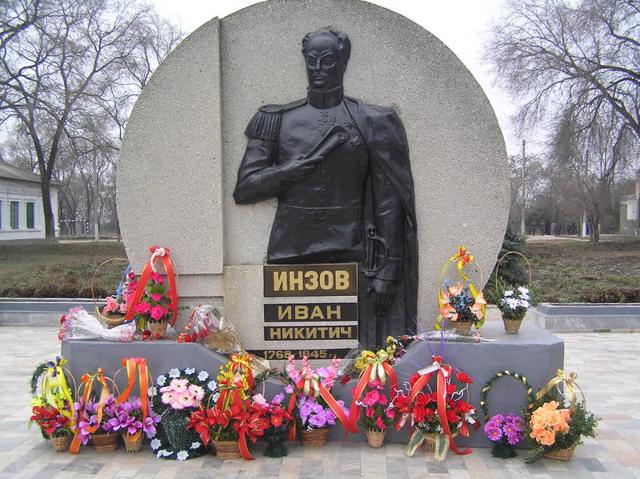
Ivan Inzov Monument
Monument
The memorial sign in honor of General Ivan Inzov was opened in 2010 for the 165th anniversary of the death of the founder of Bolhrad, a hero of the Franco-Russian war, a guardian of immigrants from the southern part of the Russian Empire.
The first monument to Inzov in Bolhrad was created with public funds back in 1911, but it was dismantled and taken to Romania under the Romanian authorities. It is planned to create an exact copy.
The current memorial is a round obelisk with a relief portrait of Inzov. The inscription on the reverse side reads: "General Inzov of the Suvorov and Kutuzov schools made a famous name for himself in military and civil positions. He gave the settlers a new life in the new Motherland. With his assistance, the construction of Bolhrad was started."

Museum and Tasting Complex "Balkanski Yastiya"
Gastrotourism
The "Balkanski Yastiya" (Balkan Dishes) Museum and Tasting Complex was founded in Bolhrad by the Bessarabian family of Serhiy and Nataliya Rusev. In addition to production facilities, the enogastronomic tourist location has a branded store of finished products and a tasting room decorated in the style of a traditional Bulgarian mehana (national restaurant).
The "Balkanski Yastiya" mehana has a museum exhibition on ethnographic themes: authentic costumes of Bessarabian and Thracian Bulgarians, handmade carpets, antique furniture, various containers for drinks, including more than 400 decanters for wine and rakia.
During the excursions, the owner of the enterprise, Serhiy Rusev, talks about the history of the establishment of the enterprise, the search for authentic recipes for the production of products and the preparation of traditional Bulgarian dishes, about the stages of production and the raw materials used in the process. During the visit, under the guidance of a technologist, you can take part in the making of sausages.
The tour ends with a tasting of the best samples of the finished products of "Balkanski Yastiya". All products are made according to ancient Balkan recipes using local raw materials of local animal breeds and spices grown independently.
The assortment includes raw cured sausages (karnak, sujuk, sushnetsya), dried beef and pork, semi-finished meat products (kebab, kyufte, pleskavitsa), home-made liqueurs, jams and marmalades, homemade adjika, and paste from bell peppers.
Visitors to "Balkanski Yastiya" have the opportunity to take pictures in national clothes, become a participant in the Bulgarian national holiday, learn to sing Bulgarian songs, take a dance master class, and take part in a master class on cooking traditional Balkan dishes.
The "Balkanski Yastiya" Museum and Tasting Complex is a participant in the project "Wine and Taste Route of Ukrainian Bessarabia".
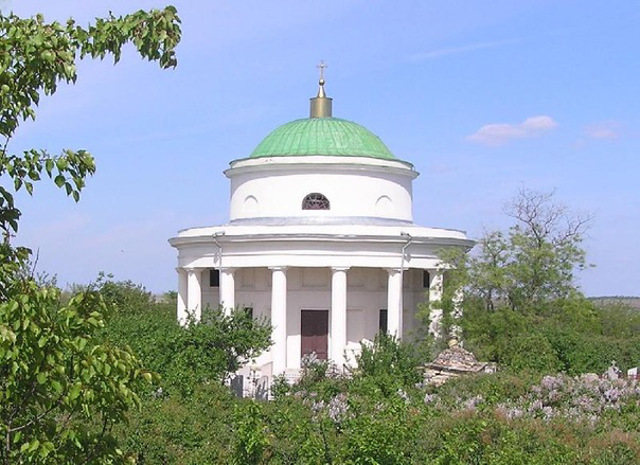
Saint Mitrofan Church (General Ivan Inzov Mausoleum)
Temple , Architecture
The Church of Saint Mitrofan in Bolhrad is the temple-tomb of General Ivan Inzov, the guardian of foreign settlements on the territory of Bessarabia, which the Russian Empire conquered in 1806-1812.
General Inzov paid special attention to the situation of the Bulgarian immigrants who founded Bolhrad. In particular, with his efforts, the Bulgarians were equalized in rights with the German colonists.
During his lifetime, Inzov expressed his desire "that his ashes lie in Bolhrad after his death." The cemetery rotunda church of Saint Mitrofan was built in 1840-1844. After Inzov's death in 1845 in Odesa, residents of Bolhrad carried the coffin with his remains on their shoulders to Bolhrad and buried them in the Saint Mitrofan Church, which became Inzov's mausoleum. The restored hearse of Inzov, which was never used for its intended purpose, is stored in the church. The words carved on the tombstone: "...He gave the envoys a new life in the new Motherland. The grateful Bulgarian colonists wished to transfer the ashes of the perpetrator of their prosperity to the depths of their settlement to preserve his name in the memory of the people."
Reviews Bolhrad
Geographical information about Bolhrad
| {{itemKey}} | {{itemValue}} |
|---|---|
| Region |
Odesa |
